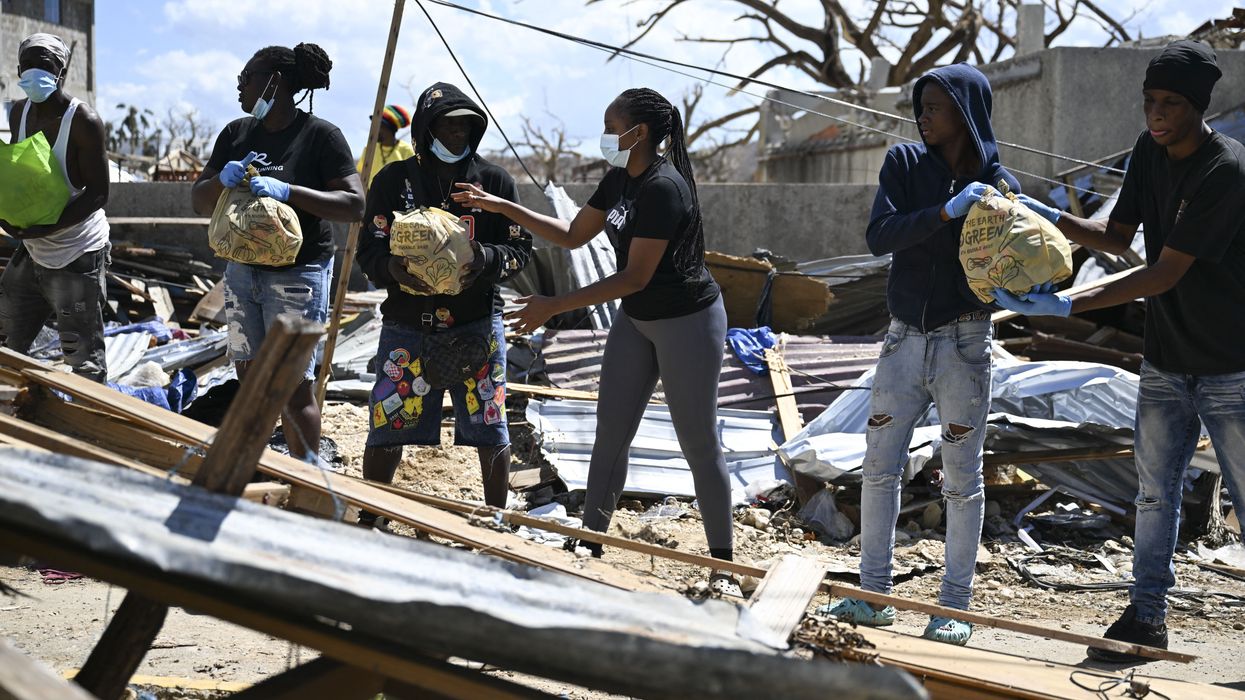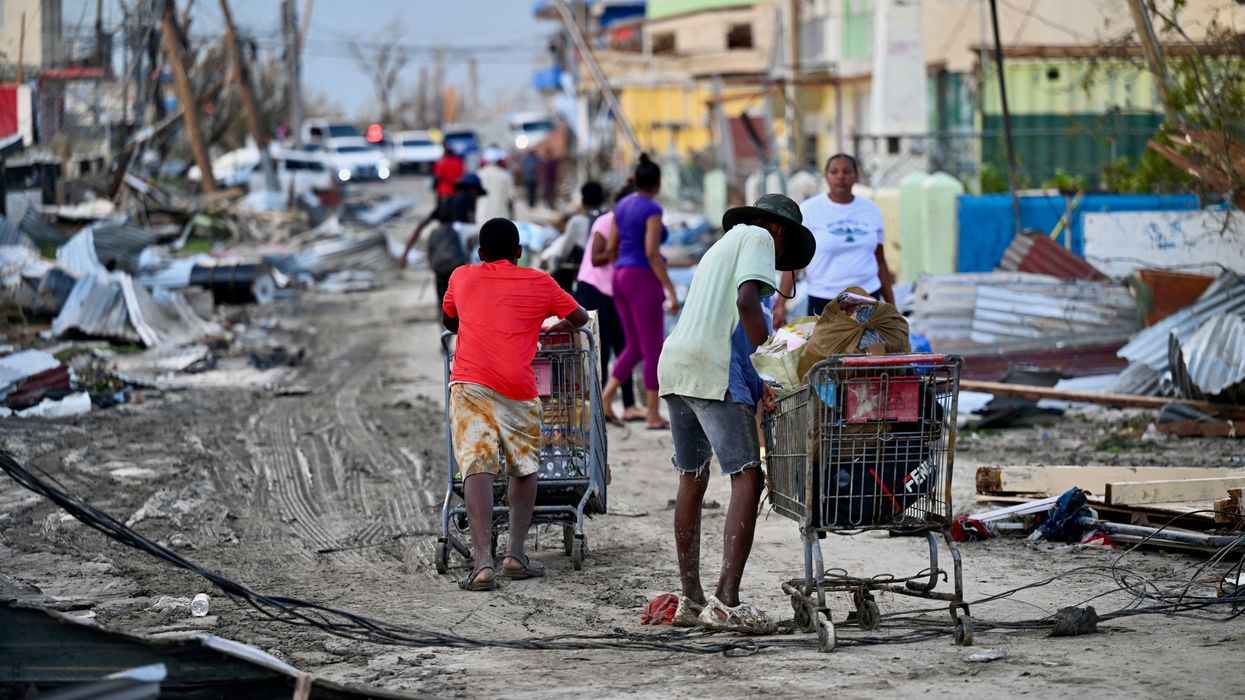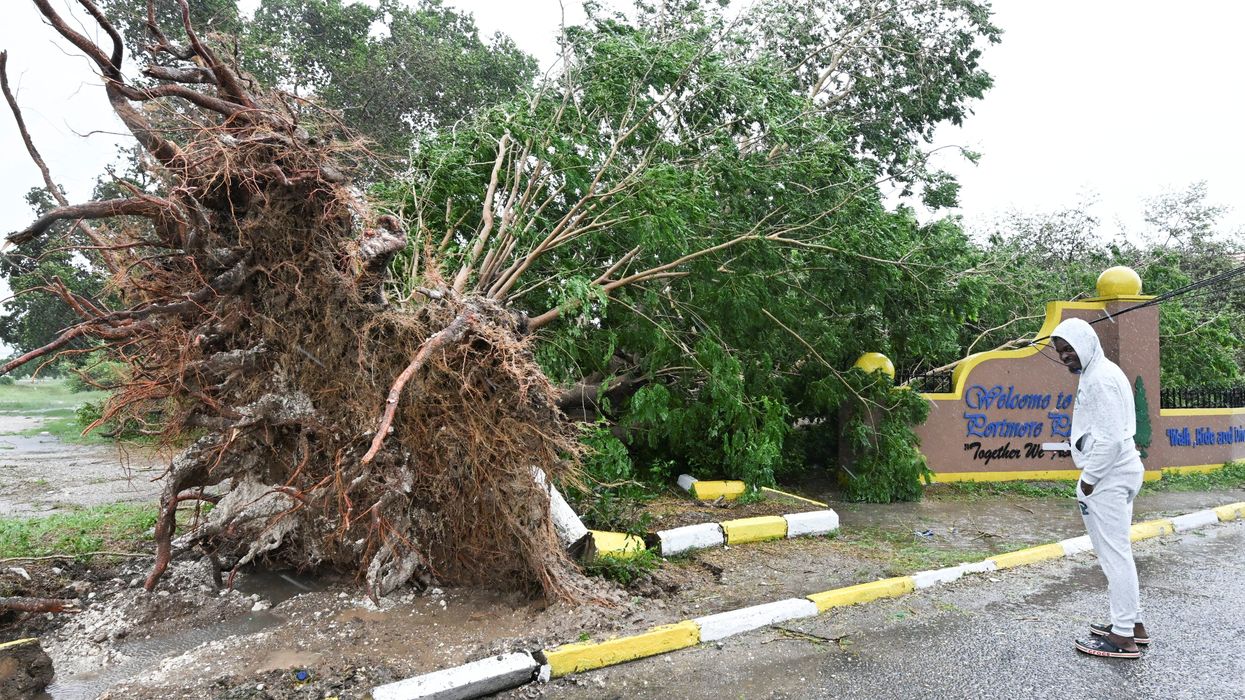Let This Be the Turning Point: Climate Justice After Hurricane Melissa
Hurricane Melissa was no “natural disaster.” It was the predictable result of choices made by powerful interests that continue to profit from a warming planet.
The wind began howling shortly after midnight on a Tuesday morning. My husband and I gathered the children and moved them into our designated “safe space.” We couldn’t sleep. The roof groaned. The windows rattled. By dawn, the sun broke through to reveal the aftermath. Debris and fallen trees littered the area around our home, but we were fortunate—though we’d lost power, our house was intact. But as I scrolled through the images now flooding social media, primarily from the western side of the island, my emotions swung from relief to despair to sorrow. Black River, Savanna-la-Mar, Santa Cruz, Treasure Beach, Montego Bay, and many other communities were devastated.
Hurricane Melissa, a Category 5 storm at landfall, approached Jamaica slowly before drifting westward along the southern coast. Meteorologists struggled to predict its path. The storm’s slow crawl and eventual path across Jamaica brought something even more dangerous: hours of torrential rain, widespread flooding, and destructive winds.
It’s already considered among the most powerful Atlantic hurricanes in recent history. Yet as the media breathlessly warned of the dangers, few spoke of the connection between this storm and the climate crisis. We kept hearing the term “natural disaster.” Hurricane Melissa, however, was anything but natural.
While hurricanes are natural hazards, the scale of destruction we now face is man-made. Over the past century, the burning of coal, oil, and gas has supercharged our atmosphere with greenhouse gases, trapping heat and warming the oceans that fuel storms like Melissa. Warmer seas mean more intense hurricanes, heavier rainfall, and slower-moving systems that linger and devastate. Meteorologists continuously emphasized how warm the Caribbean Sea was before Melissa made landfall, and how deep the warm water extended, fueling the hurricane.
As the media breathlessly warned of the dangers, few spoke of the connection between this storm and the climate crisis.
While fossil fuel companies have known about the correlation between the warming and a changing climate for decades, they have spent billions sowing doubt, funding misinformation, and lobbying against climate policies that could have curbed emissions. Their profits have come at the expense of our safety and our future. Countries like Jamaica, responsible for less than one percent of global emissions, are left to shoulder the costs of adaptation, recovery, and rebuilding. Longer recovery times and deeper economic strain are becoming the norm.
So, no, Hurricane Melissa was not a “natural disaster.” It was the predictable result of choices made by powerful interests that continue to profit from a warming planet. If global emissions are not drastically reduced urgently, these events will only escalate.
After a disaster, we often applaud those who are able to recover quickly. But we cannot just be resilient in the face of climate chaos —we must be climate resilient. This type of resilience goes further: it’s about the capacity of individuals, communities, and ecosystems to anticipate, prepare for, and respond to the impacts of the climate crisis. That ability to recover means more than rebuilding roads, bridges, hospitals, schools, and homes. It means enforcing environmental laws that prevent unsafe development, investing in nature-based solutions, and ensuring that recovery reaches everyone. It also means supporting community-led adaptation initiatives that are rooted in local knowledge and collective care.
Preparedness must become a culture, not a scramble, before a storm makes landfall. That includes maintaining drainage systems year-round, preserving wetlands that buffer storm surges, enforcing no-build zones and ensuring that technical experts, including meteorologists, hydrologists, and climate scientists—not just politicians—play visible roles in guiding public communication and action.
Hurricane Melissa forces us to confront this issue of climate justice. That’s why the Caribbean Climate Justice Alliance, a coalition of grassroots leaders, creatives, academics, and activists, is calling for bold, unified, justice-centered action at COP30 happening right now in Brazil. The message to world leaders is clear:
- Cut emissions and keep global warming below 1.5°C, recognizing historical responsibility and prioritizing people over profit.
- Scale up locally led, nature-based solutions for adaptation and resilience—our communities already know what works.
- Ensure climate finance reaches the frontlines, supporting small businesses, community groups, and civil society.
- Address loss and damage in all its forms—economic, cultural, and ecological—because not everything can be rebuilt.
- Advance a rights-based approach to climate action that is inclusive, gender-responsive, and grounded in dignity.
This message reflects the lived realities of people across our islands. Hurricane Melissa has reminded us of our vulnerability, but also of our strength, our knowledge, and our capacity to lead. In the coming weeks and months, as relief turns to recovery, we must also keep an eye on transformation. The choices we make now about how we rebuild our towns and cities, as well as how we support farmers, fishers, and community groups will determine whether the next storm brings the same level of devastation.
Let Hurricane Melissa mark not just a moment to rebuild, but a turning point for radical and just changes that are long overdue.


